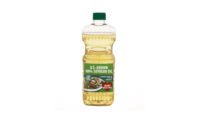EFSA Approves Heart Health Claim for Olive Oil Polyphenol

The EFSA is an independent European agency, funded by the European Union budget, which offers scientific advice in the areas of food safety and nutrition. Based on research published in the EFSA Journal, the dietary consumption of hydroxytyrosol and related polyphenol compounds from olive fruit and olive oil offers protection to the blood lipids from oxidative damage which is known to adversely affect cardiovascular health.
The agency’s scientific panel of experts based their conclusion from data published in one large study and two smaller scale studies, each of which showed a dose-dependent and significant effect of olive oil-derived hydroxytyrosol on the lowering of oxidized low-density lipoproteins (LDL, or “bad cholesterol”). A minimum of 5mg of hydroxytyrosol must be contained within the food product in order to carry the heart-health claim.
Hydroxytyrosol, primarily found in the olive leaves and pulp, has not only been shown to promote heart health but may also protect against neurodegenerative diseases such as Alzheimer’s. A study on laboratory mice published in the Journal of Agriculture and Food Chemistry suggests that in addition to reducing oxidative damage in the cardiovascular system, hydroxytyrosol can also protect brain cells by limiting the amount of ATP, an energy source in cell metabolism, which is affected by oxidative stressors.
Another recent study on olive polyphenols finds that hydroxytyrosol may have the ability to inactivate both Staphylococcus aureus pathogens and the toxin produced from the bacteria. These food-borne pathogens contribute to some of the 48 million illnesses each year in the U.S. that occurs from eating contaminated food.
Following a traditional Mediterranean diet, a person will consume about 5-10mg per day of olive polyphenols. Consumption of the diet with olive oil as the primary fat source is associated with above-average lifespans due to a lower incidence of all causes of death. Olive polyphenols, including hydroxytyrosol, provide anti-inflammatory activity, immune function benefits, and an improved ratio of HDL to LDL cholesterol levels.
From the October 17, 2011, Prepared Foods' Daily News.
Looking for a reprint of this article?
From high-res PDFs to custom plaques, order your copy today!





